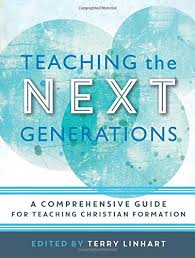|
One of the "drumbeats" of the Brookside Institute is biblical literacy - helping people engage, understand, and love the Bible as God's Word to us. As we keep coming back to this priority, we eventually need to consider how we're approaching the Bible. What's the attitude we come with - indifference or excitement, apathy or anticipation?
Since this is such a big part of what the Brookside Institute does, I figured I'd post the video of a sermon I recently did (November 27, 2016) at Brookside Church on Hebrews 4:12 - looking at our approach to God's Word and why we should "come hungry" to the Bible. The video is below. First, here's a brief outline of what I say: Outline: "come Hungry to the Bible" (Hebrews 4:12)
If you liked this post, you may also be interested in...
0 Comments
If you're new to the idea of Christian apologetics, this topic is basically talking about introducing and explaining Christianity to others who may have questions about or critiques of the Christian faith. In this sense, apologetics is best seen as a servant of evangelism - sharing the good news of what Jesus Christ accomplished and offers. 1 Peter 3:15 is a great biblical "go to" for the importance of apologetics: 15 But in your hearts revere Christ as Lord. Always be prepared to give an answer to everyone who asks you to give the reason for the hope that you have. But do this with gentleness and respect... (bold emphasis added). Obviously, explaining Christianity to others and answering their questions is a big category! (There are whole books written just on specific questions - like human origins, the existence of God, the problem of evil, the reliability of the Bible, etc.). And we don't want to give the impression that answering people's questions is ALL we need to be concerned with. Francis Schaeffer reminded us that the "ultimate apologetic" is Christians showing love.
With all that said, books on apologetics have their place and serve a valuable role. Here are 8 books on Christian apologetics I generally point people towards first. My challenge to you isn't to read all 8, but to choose the 1 or 2 that most resonate with you, and start there. Here are my recommendations. Click on either the pictures or titles below to be taken to an Amazon.com site where you can learn a bit more about any of these books. 2 Timothy 4:1-3 is a great "go to" passage for preaching. Listen to what Paul says: 1 In the presence of God and of Christ Jesus, who will judge the living and the dead, and in view of his appearing and his kingdom, I give you this charge: 2 Preach the word; be prepared in season and out of season; correct, rebuke and encourage—with great patience and careful instruction. 3 For the time will come when people will not put up with sound doctrine. Instead, to suit their own desires, they will gather around them a great number of teachers to say what their itching ears want to hear. There are all sorts of reasons this passage shouldn't be overlooked by those who preach. The importance of preaching is clearly highlighted: Paul's command in verse 2 is to PREACH THE WORD. That simple command drives this passage. If you look closely, this passage highlights the gravity of preaching (v. 1), its importance (v. 3), and different ingredients that will make their way into our preaching over the course of time ("correct, rebuke, and encourage"). All of these things are worth thinking about.
But the place I want to focus is on the two "qualifiers" that Paul mentions at the end of v. 2. As we "preach the Word," we're to do so with "great patience" and "careful instruction." I'm worried that these important qualifiers can be too easily lost by some who want to focus exclusively on other parts of this passage, and so let's look briefly at each of these, as we factor them into our preaching (and teaching). Teaching the Next Generations: The Challenge (and Opportunity!) of Teaching in the Local Church11/3/2016 I'm excited about Terry Linhart's (ed) recently released Teaching the Next Generations: A Comprehensive Guide for Teaching Christian Formation. As the title and subtitle make clear, this book's focus is on teaching for Christian formation. Among others things, chapters throughout the book highlight the contribution of teaching for discipleship (ch. 1), developing a theology of education (ch. 2), a scriptural basis for teaching (ch. 3), the essence of the life of a teacher (ch. 4), along with sections on learning theories (section 2), curricular considerations for various ages (section 3), methodologies and evaluation (sections 4 and 5). I'm excited about how this book will be an ongoing resource for me in a number of roles - as a teacher and communicator, as someone who thinks about scope and strategy in a church context, and simply as an advocate for the teaching ministry of local churches. I'm looking forward to digging into the book further. I was reading through the Introduction last night, and ran across this quote that further whets my appetite for the book; the quote draws attention to the challenge (but also the opportunity) of teaching for Christian formation today. Check it out: We stand here in a new century with a significant challenge before us. Recent research suggests that the church is losing young adults, even those who 'grew up' in the church. David Kinnaman says young adults leave in part because the church as field to help them think about and answer difficult questions. Similarly, the largest study on the religiosity of youth in America showed that church teens were surprisingly inarticulate about their faith. When researchers posed questions about what they believed, young people said it was the first time that an adult had asked them about their beliefs, and they seemed unable to answer basic questions about the central doctrines of the Christian faith. Though there is a lot of teaching in the church, could it be there is not as much learning? |
Tim WiebeChristian. Husband. Father. Pastor. Learner. Contributor. Reader. Categories
All
Archives
June 2024
|
© 2014-2024 | 11607 M Circle, Omaha NE, 68137 | www.thebrooksideinstitute.net




 RSS Feed
RSS Feed
